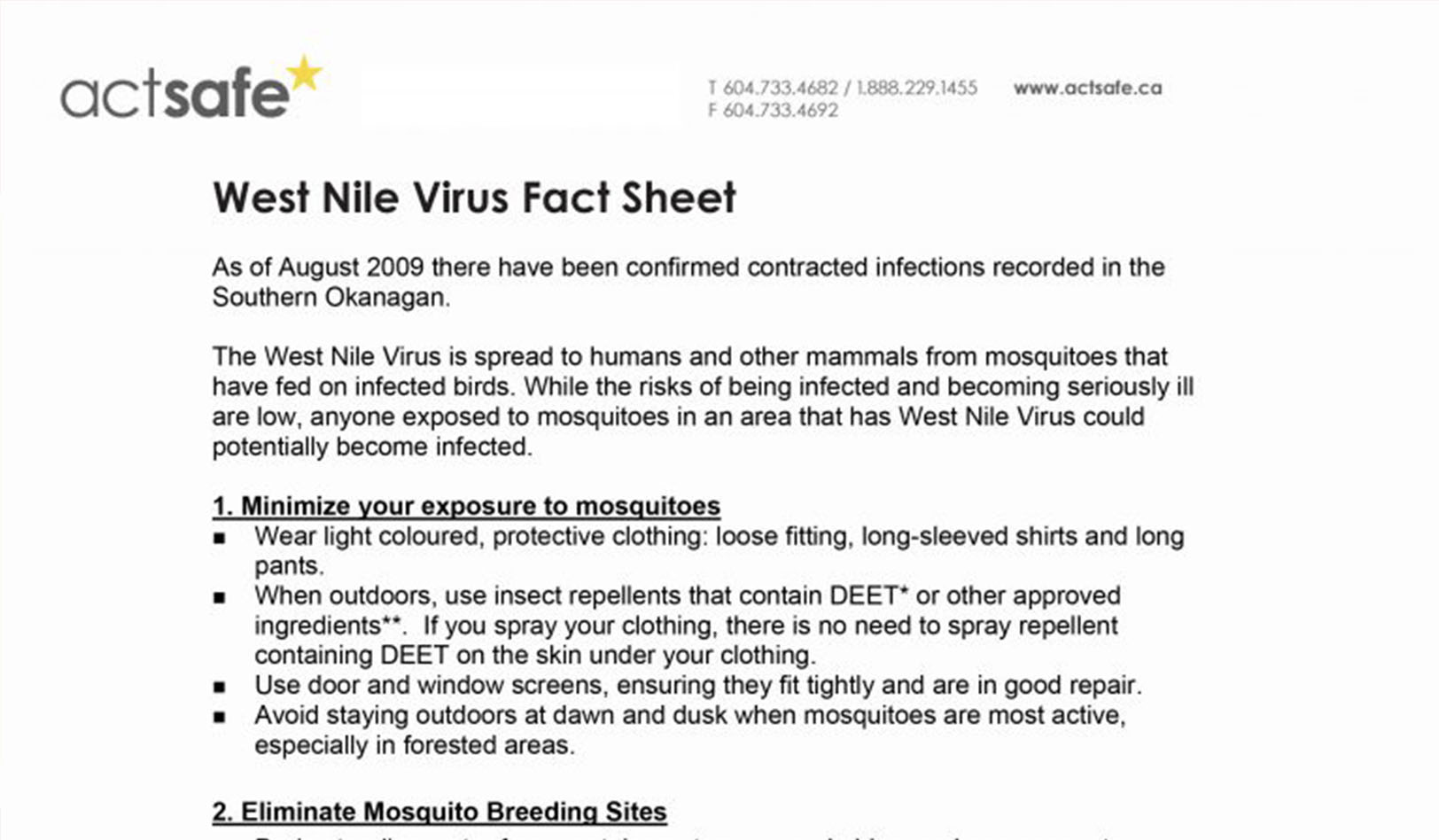As of August 2009 there have been confirmed contracted infections recorded in the Southern Okanagan.
The West Nile Virus is spread to humans and other mammals from mosquitoes that have fed on infected birds. While the risks of being infected and becoming seriously ill are low, anyone exposed to mosquitoes in an area that has West Nile Virus could potentially become infected.
1. Minimize your exposure to mosquitoes
- Wear light coloured, protective clothing: loose fitting, long-sleeved shirts and long pants.
- When outdoors, use insect repellents that contain DEET* or other approved ingredients**. If you spray your clothing, there is no need to spray repellent containing DEET on the skin under your clothing.
- Use door and window screens, ensuring they fit tightly and are in good repair.
- Avoid staying outdoors at dawn and dusk when mosquitoes are most active, especially in forested areas.
2. Eliminate Mosquito Breeding Sites
- Drain standing water from containers, tarps, recycle bins, garbage cans, etc.
- Remove any old unused items that collect water (eg. tires) from your set or location.
- Cover containers that cannot be dumped with fine mesh screens.
- Unclog rain gutters.
If there is a large area of stagnant water of concern, not on your property, contact your local engineering or public works department. Arrangements may be made to drain it or prevent mosquitoes from breeding in it. In the Lower Mainland each municipality is responsible for West Nile/Mosquito control.
3. Symptoms
Most people who are infected by the West Nile Virus experience no symptoms. About 20% experience fever, headache, body ache and rash lasting one week or less. In less than 1%, West Nile Virus can cause serious health effects such as meningitis (inflammation of the lining of the brain) or encephalitis (inflammation of the brain). If you develop severe headache or neck stiffness without a cause, please consult your doctor.
West Nile Virus Information:
BC Centre for Disease Control
Health Canada
Use only pesticides that are registered by the Pest Control Products Act (PCP Act). Look for a PCP number on the pesticide container before purchasing.
*DEET is a powerful chemical so please follow safe work procedures and instructions carefully. DEET should not be used on children under 6 months of age. The percentage of DEET in repellents should not exceed 30% for adults or 10% for children.
** Use discretion. Alternatives to DEET include a soybean based product like Bite Blocker, proven effective, but for a much shorter duration. A 23.8% DEET formula provided protection for over 5 hours. Bite Blocker protected for only 1.5 hours. Bug zappers kill good insects that eat mosquitoes, Ultrasonic devices have proven ineffective. You can use both insect repellent and sunscreen when outdoors. Use the sunscreen first followed by the insect repellent.



Share Now: